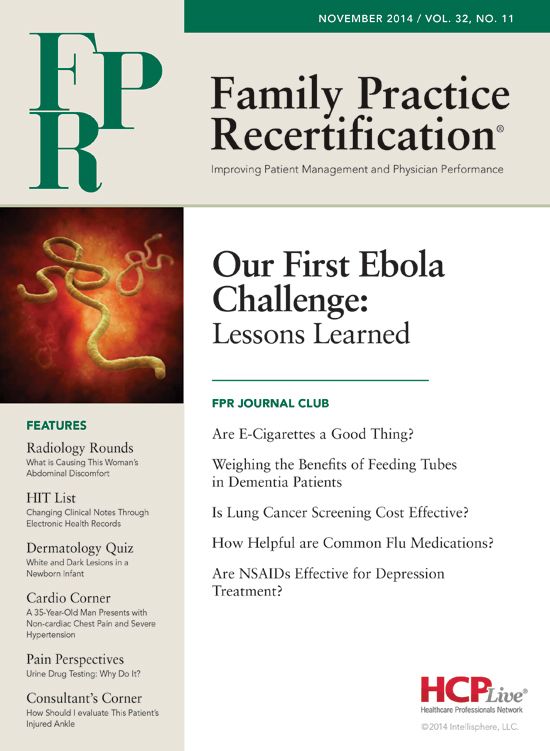Publication
Article
Family Practice Recertification
Changing Clinical Notes Through Electronic Health Records
Author(s):
As electronic health records become more or less mandatory, the question moves from how widely they are adopted by practices across the country to whether the new versions are more effective than the old pen-and-paper way of doing business.

As electronic health records (EHR) become more or less mandatory, the question moves from how widely they are adopted by practices across the country to whether the new versions are more effective than the old pen-and-paper way of doing business.
A recent study published in the Journal of the American Medical Informatics Association looked at the handwritten and electronic records kept by doctors over a five-year period to see if the move to the digital age helped make a difference in the quality of outpatient notes.
The final notes were reviewed five years after the practices started using EHR systems but were also looked at 6 months before EHR, and 6 months after the systems were implemented. Using a system called QNOTE to evaluate notes, the practices were scored on a score of 0 to 100 for 16 primary care doctors who wrote a combined 300 patient notes.
The QNOTE system looks at 12 elements of practice notes including chief complaint, history of present illness, past medical history and medication among others. Those elements are then looked at more closely as to whether they are “clear, complete, concise, current, organized, prioritized, and sufficient information,” the authors noted.
The patient pool consisted of patients who had been diagnosed with type 2 diabetes and who had been seen by their doctors at least three times during the course of the study, which resulted in three visit notes for each patient’s records. One-third of the records were handwritten while the other two-thirds were done electronically. Out of 537 potential patients 100 were selected to take part in the study.
Looking at the final data the authors noted the average scores at 6 months before was 52 which improved to 61.2 at 6 months after and 80.4 at 5 years after. “All the element and grand mean quality scores significantly improved over the 5-year time interval,” the authors noted.
The improvement in the efficacy of the notes provided by the doctor, according to the author covers a wide range of potential issues. This includes use in practice, patient safety, quality assurance, legal proceedings, billing, and continuing education for the doctors.
“EHRs are being implemented in clinical practices throughout the USA yet the basic functions of clinical notes have not changed despite this transition from a paper to electronic format,” the authors stated. “The benefits of EHRs include the instantaneous availability of medical records and the elimination of illegible notes.”
The most affected elements according to the authors were problem list, past medical history, social and family history, and review of symptoms which the authors had termed as “significantly below,” the average scores before the introduction of EHR. They also showed the greatest improvement over the course of the study.
“The EHR significantly improved the overall quality of the outpatient clinical note and the quality of all its elements, including the core and non-core elements,” the study authors concluded.
The study was funded in part by the US Army Medical Research & Materials Command. None of the authors claimed any financial affiliations beyond their government employment.






